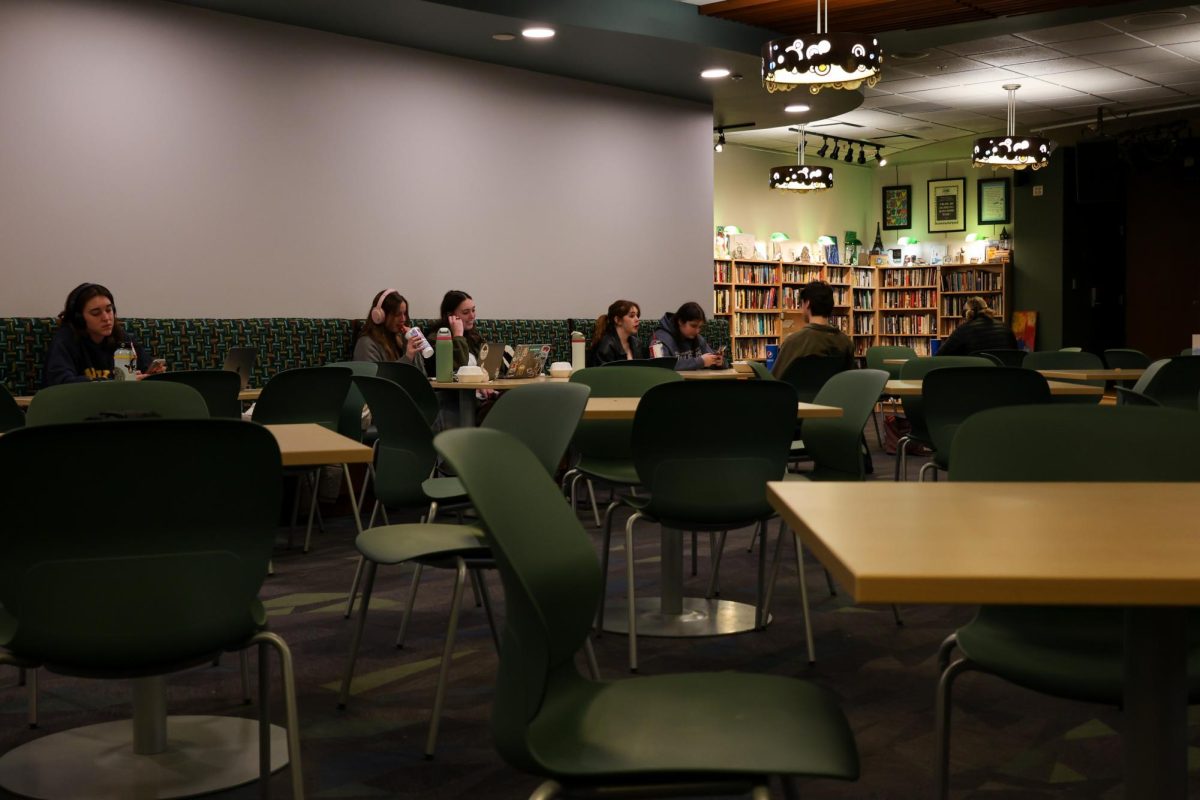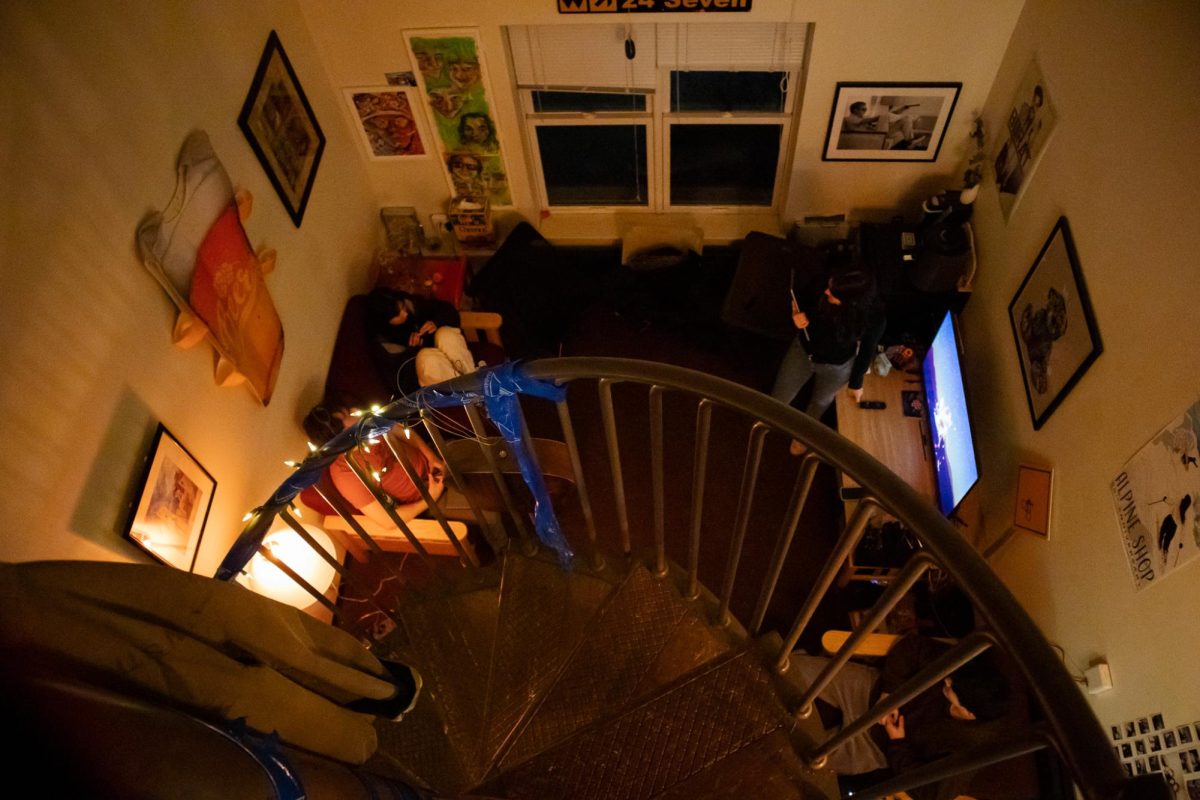Burlington Mayor and Vermont gubernatorial candidate recently spoke with The Vermont Cynic on his bid for governor. He has campaigned on a progressive agenda that includes both livable wages and universal healthcare for all Vermonters.
Vermont Cynic: You switched from the Progressive Party to the Democratic Party to run for governor. Do you feel that you have had to compromise any of your positions on certain issues?
Peter Clavelle: No my politics haven’t change. We have decided given the electoral dynamics of this country that if we continue to split the vote, the only beneficiaries would be Republicans. So those of us who share common values and principles need to work together. I concluded that the best contribution I could make is to work with and within the Democratic Party, while retaining the support of Progressives. My values are still the same; I go to work everyday wanting to make government work for everyday ordinary people. So many people in politics today, their commitment, their interests, and their motivation is to make government work for those who have money and power. Obviously they need to be a part of the process, but those with money and power do not need special treatment, but that what they get from the Republican Party.
VC: Do you think that a strong progressive third party is important? Is it developing or do you think that the Democratic Party will absorb it?
PC: I think that a strong progressive movement in the US allows for the advancement of issues and ideas the otherwise might not be discussed. I think that strategically we have to make certain that the presence of the movement does not result in Republicans being elected. Remember that Bush never won the election, he lost the last election by a half of a million votes, but it was the presence of Nader in that election that resulted in Bush being president.
VC: If George W Bush is elected progressive social and environmental policy may only be viable on the state level. What would you do as governor for these issues?
PC: There are fundamental differences between Governor Douglas and myself. One is that he chairs the Bush/Cheney reelection campaign in Vermont. I will do everything in my power to support the election of John Kerry and of John Edwards and to get Bush/Cheney out of office. These guys have been a disaster for this state, this country, and this planet. Four more years of Bush/Cheney will be even more destructive. I think that history will remember George W Bush as the worst president in this nation’s history, particularly when you consider the global implications of his foolish decisions in leading us into a war that was totally avoidable and unnecessary. As Governor I would stand with the people of Vermont speaking out against federal policies that are disastrous for this state. Regardless of whether the president is George Bush or John Kerry I would stand with the people of Vermont. There are some federal policies that can be reversed at the state level but others you are stuck with. The Bush tax policies, giving tax cuts to the richest is obscene. His foreign policy as alienated us from the allies we have had for generations, his environmental polices are polluting our air, water, and wilderness. As governor you can bend some of the trends and as governor I would work hard to do that. For example, we have a very misguided national energy policy, the notion is, if we use more energy, somehow someway the market forces will bring down the cost down for all us. It hasn’t worked and it’s not going to work. As governor I would lead the state of Vermont and the state of Vermont would lead the country in breaking our addiction to fossil fuel and our dependency on nuclear power by investing in renewable energy and energy efficiency. People around this country are looking for a state that can be a beacon of hope, and Vermont can be that state. As governor I will lead the state in terms of creating a strategy for a sustainable economy, one that pays livable wages, one that offers young Vermonters the option of staying in the state to earn a living, one that recognizes the importance of the creative economy which fuses culture and commerce as we have done in Burlington in a way that creates jobs. One that supports existing downtowns and village centers and works against sprawl. An economy where the political leaders would stand up with organized labor and protect their right to unionize.
VC: Is it feasible for all Vermonters to have a livable wage?
PC: The way the livable wage concept works is that it is applicable to public sector jobs. I don’t believe in the short term that the government can mandate that private employers pay their employees a livable wage. What we can do is create strategies and to offer incentives that will result in the creation of better paying jobs in the state of Vermont. At the municipal and state level the mayor and governor can say that within the public workforce workers are to be paid a livable wage. We have done that in the city of Burlington, the 600 employees of the city of Burlington are all paid a livable wage, so it is a situation of putting your money where you mouth is. As governor I would out similar policies at place for the state workforce. The minimum wage you get in the city of Burlington is $11.92 an hour, and for people who contract with the city of Burlington it is expected that they pay a livable wage as well. The governor last week was asked if he would commit to a livable wage guarantee for state employees, and he refused to make that commitment.
VC: Vermont has historically been fiscally conservative. How do you plan to fund your healthcare plan? PC: The problem is not that we don’t spend enough money on healthcare, it is now $3.2 billion a year, and it will reach $4 billion a year by 2007. Only in 1990 it was a $1 billion, so you can see that it has gone up astronomically. The “Vermonters First” plan that I have proposed would do a number of things. One, in the first day in office I would authorize the reimportation of prescription drugs from Canada, that could save big dollars, on average it will save 50 percent on most drugs.
Within three years every Vermonter would have healthcare at a price that they can afford. This would work by when more Vermonters move from the ranks of the uninsured to the insured there will be savings. Millions of dollars that today are spent by providing healthcare to the uninsured would no longer be spent. Under my plan those saving would help support and subsidize the cost of healthcare for small businesses as well as individuals. VC: What do you think that the University of Vermont’s role is in the state of Vermont is and what is Vermont’s role at the university? How, for you, does this interdependent relationship work?
PC: The state of Vermont and the University of Vermont are linked at the hip. We are mutually dependent, there is a bond and relationship, but it need to become stronger, much stronger. The university’s goal is obviously to provide top-notch education for Vermonters and out-of-staters. The university also serves as an economic engine for the state of Vermont. There are many opportunities, spin-off entrepreneurial activities; jobs are created as a result of the university endeavors. The state needs to do a better job at supporting the university. I think that it is shameful that in the state of the Vermont per capita spending for higher education ranks 49th in the country, then we wonder why it is so expensive for Vermonters to get a college degree. It is expensive because the state does not support the university. We spend more money in the state of Vermont on the department of corrections than we do for higher education.
VC: What are your thoughts on President Daniel Fogel’s bold vision for the University of Vermont over the next decade?
PC: I am very supportive of President Fogel, I think he has brought forth a dynamic vision for the University of Vermont; it is one that I support. I have developed close relationship with Dan Fogel. I do believe that it is important, as does Dan Fogel that as the enrollment of the university grows, that it grows its capacity to house students and to deal with the other impacts of a growing student population, like parking and dealing with traffic issues. I also very much support the building of a Student Commons, it is a very expensive project, but it is an excellent investment, building a stronger university community.
VC: The state appropriation right now just under 10 percent and that number is project to decrease to just over 7 percent by 2013. But that is also with the actual dollar amount increasing by around 20 percent in that time. You have already expressed the desire to increase funding to the university system; do you have a target percentage for state appropriation the University of Vermont?
PC: I think that the state in a significant way needs to increase its appropriation the University of Vermont. Our goal for the next five years in terms of per capita spending years ought to increase so that we are not ranked 49th in the nation but to be some where in the middle of the pack. That will require a significant increase in state appropriation. The past year Jim Douglas proposed a 2 percent increase in funding that needs to be substantially greater.
















